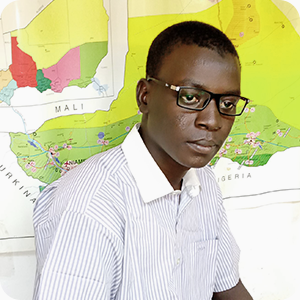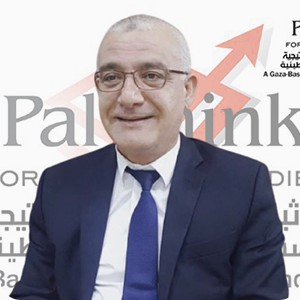During the last three decades, violence between Israel and Hamas has repeatedly erupted. In the early hours of October 7, 2023, Hamas launched a large-scale terrorist attack against Israel which responded with massive airstrikes on the Gaza Strip, cutting electricity and water supplies, and prompting peaceful residents to flee the region. A growing Israel-Hamas war and averting a humanitarian catastrophe in the Gaza Strip are the concerns that now plague a world that has already been devastated and remains concerned about the ongoing war in Ukraine. We discussed the impact of the Israel-Hamas war on the Middle East region and the flow of international aid with several international experts, and you can find their opinions below.
Key Takeaways:
- Within three weeks of the active war phase, there are more than 4,000 dead on both sides.
- The war has affected more than 1.1 million people who are now in urgent need of food, water, electricity, shelter, and medication among other basic needs.
- Experts think that the war has turned international attention and scrutiny away from the Russia-Ukraine war and the U.S. could divert its resources to Israel to the disadvantage of Ukraine.
- The Israel-Hamas war is likely to impact development aid and reduce funding for other crises such as the climate crisis, the multiple conflicts in the Sahel and the Horn of Africa, and conflicts in Syria, Yemen, and Afghanistan.
DevelopmentAid: How will this war impact the situation in the Middle-East and the Russian-Ukrainian war?

“The latest escalation in the Israel-Palestine war has both a short- and long-term impact on the Russia- Ukraine war and the whole Middle-East region. Thus, the active phase of the conflict has turned international attention and scrutiny away from the Russian invasion of Ukraine. If the war lasts longer, some parties to the conflict such as the U.S. might divert its resources to Israel to the disadvantage of Ukraine. USA’s allies might also limit their support to Ukraine. If the USA decides to support both Israel and Ukraine, its defense industries will produce more weapons which will be good business. The war in Gaza will bring in other players such as Hezbollah, Iran and Iraq thus destabilizing the whole region. The killing of innocent civilians during air strikes creates a moral dilemma and will have long-term psychological effects on those directly involved. Countries such as Egypt will experience an influx of refugees and might be forced to deploy forces along the border and Israel might view this as a challenge or provocation. The influx of refugees will also create socio-economic problems for Egypt. The destruction of infrastructure in Gaza will have a long term socio-economic impact in the whole region. The price of fuel might also go up.”

“Further escalation of the Israel-Hamas conflict could potentially destabilize the broader region, leading to increased tensions and the potential involvement of other regional actors. There may be implications for peace negotiations, regional alliances, and global geopolitics, depending on the responses of neighboring countries and international actors. The impact on the Russian-Ukrainian war: while the Israel-Hamas conflict and the Russian-Ukrainian war are separate conflicts with distinct causes and dynamics, increased global attention and resources directed towards one may affect the international response to the other. It’s possible that any heightened global tensions or shifts in political dynamics resulting from one conflict could indirectly impact the other. It could divert international attention from the Russian-Ukrainian war, leading to reduced diplomatic pressure on Russia. Increased global military involvement in the Middle East might indirectly embolden Russia’s actions in Ukraine.”

“In the longer term, the Hamas-Israel war will open a Pandora’s box. While not perfect, the Oslo agreement has brought some stability to this part of the Middle East. Currently, there is no optimal solution to end the conflict. If the Palestinians managed to flee to Egypt, they would end up in “temporary” camps which – as we know from Jordan and Lebanon – become new homes (which could destabilize the situation in Egypt). If Israel managed to exterminate Hamas – knowing that almost all wars involving Israel have ended up with it taking up the conquered territory – it could be the end of Gaza we know. In the short term, the impact is already visible with the suspension of the implementation of the Abraham Accords which aim at normalizing relations between some Arab states and Israel. As a result, peace in the region remains elusive with potential conflict extension, especially to Lebanon and Syria, where unstable economies and dysfunctional governance structures may create fertile ground for extremists to join the jihad Hamas is calling for. Compounded by the strong reactions of supporters of both sides, the probability of security incidents increases in many parts of the world. The Hamas-Israel war will delay the end of the Russian-Ukrainian war. Russia’s hopes to wait out the Biden administration may be strengthened by the US delivering weapons to Israel. With stockpiles in the West not being renewed as fast as they are depleted and with Israel needing, to a certain extent, the same type of weapons as Ukraine (e.g., missile defense systems), the divided U.S. Congress may focus on the former, unless a kind of package deal is achieved there.”

“As the world is even more polarized than before October 7, 2023, the Middle East has rather unified behind the Palestinians, who have historically been supported by the Arab world, while Israel has shown an almost unprecedented weakness. Crowds of people took to the streets of Amman, Baghdad, Beirut, Cairo, Damascus, Tunis, Tehran, Ramallah, and Sanaa (amongst others) in solidarity with the people of Gaza while governments in the region have spoken against Israel’s actions and urged for humanitarian aid to reach Gaza people. If Israel’s government tried to present itself as a security leader in the region, the conflict has rather exposed its disproportionate and inhuman war tactics against Gaza civilians. The international community has largely been focusing on the Israel-Hamas conflict since October 7 which has made the world almost forget about the Russian-Ukrainian war, although it had been making headlines in media coverage since February 2022. U.S. President Biden has been arguing that the Israel-Hamas conflict is, somehow, a continuation of the Ukrainian-Russian war and is determined to support Ukraine against Russia and Israel against Hamas. It is, however, unlikely that the U.S. will be able to convince the international community that the two crises are tied. If the US government doesn’t want to lose the support of other countries in the Ukrainian war, it will need to use its privileged relationship with Israel to bring a quick end to the conflict.”

“It has been said that war is a form of ‘development in reverse.’ War is antithetical to the concept of a region, as it challenges the legitimacy of both the region and its cultural and moral values. Therefore, observing the Russian-Ukrainian war on the international level leads to the deterioration of economic and cultural relations, as well as the permeability and fragility of borders. This is because culture plays a fundamental role in shaping the collective identity of a region.”

“In the aftermath of the Israel-Hamas war, a somber reality is gripping the region. Amidst the debris, stories of devastation emerge — families shattered, lives upended, and communities torn apart. The impact, profound and far-reaching, extends beyond the immediate conflict zone. Neighboring nations feel the tremors, their stability hanging by a thread, while global powers watch, hands tied, amidst escalating geopolitical tensions. Simultaneously, in Eastern Europe, the Russian-Ukrainian war persists, a silent crisis overshadowed by other world events. Amidst the noise of the international stage, the plight of the Ukrainians struggles for attention, hindering cohesive global efforts toward resolution.”

“Global conflicts have implications that go beyond the boundaries of the countries directly involved. The recent escalation of the Israel-Hamas conflict in the Gaza Strip in October 2023 has great consequences. These hostilities have presented challenges for humanitarian organizations delivering aid to the region. Not only has this conflict jeopardized the safety and security of aid workers causing loss of life and property, it has also created barriers in terms of accessibility and logistical operations. One major concern revolves around the obstruction of assistance to populations who lack essential supplies for survival and medical aid to the injured-vulnerable group. The Russia – Ukraine war had an impact on the availability and distribution of aid to communities and the global food supply chain which affected some countries. Humanitarian organizations on-site encounter obstacles including restricted access to affected areas due to blockades and checkpoints, damage inflicted upon infrastructure such as roads and buildings as well as constant threats of violence targeting civilians and humanitarian workers providing essential services. It is crucial for the international community to facilitate dialogue between the sides, with the aim of fostering discussions and bringing an end to this war.”

“The Gaza Strip is currently experiencing an unprecedented humanitarian catastrophe and 2,300 people have lost their lives. But this is what we can see in the hospitals. There were hundreds of people buried under the rubble and no one could reach them. The unprecedented destruction of infrastructure has made life a living hell for everyone, but it is the harshest for women, children and the disabled. There were 8,000 wounded in hospitals within a week, and this is close to the number of wounded in the 51-day war in 2014. This exceeds the capacity of the most advanced health systems in the world let alone a fragile health system that has been suffering for years from a shortage of medicines and equipment. Medical teams are no longer able to work. The army ordered 1.1 million residents of the Gaza Strip to evacuate their homes and flee to the southern regions, while at the same time bombing the cars carrying them and this contradicts humanity. The decision to impose a complete siege on Gaza, cut off electricity, stop fuel supplies, and prevent infant formula and medicines deliveries threaten to turn the whole Gaza Strip into a real grave. It is impossible for two million people to live in less than a third of Gaza’s area. Not allowing humanitarian aid or a humanitarian truce that allows people to catch their breath represents unbearable suffering for the population.”
DevelopmentAid: How will the Israel-Hamas war impact the international aid sector?

“Aid groups say that they have been supplying food and non-food items to 63% of the population over a long period of time. However, the recent move by the Israel government to block access to Gaza will have a negative impact on the international aid sector. The war has already affected more than 1.1 million people who are now in need of assistance in the form of food, water, electricity, shelter, and medication among other basic needs. Most of this assistance comes in the form of international aid. According to the Le Monde news report of the 15th of October 2023, thousands of tons of aid, including medical supplies that could assist up to 3,000 people, was piling up in Egypt and could not be allowed into Gaza. Other than the border blockage, the war has also affected water and power supplies in Gaza. Without electricity and fuel, it will be difficult for aid organizations to efficiently deliver the much needed humanitarian aid. The war will also compromise the safety of humanitarian workers who play an important role in the implementation of international aid programs. By cutting food, water and electricity supplies, Israel also violates international law against collective punishment.”

“Humanitarian organizations and aid agencies may face increased pressure to respond to the needs of the affected populations in both conflict zones. Resource allocation could become challenging, as the global community may need to balance support for multiple crises simultaneously. Access to conflict zones for aid workers and the delivery of humanitarian assistance could become more difficult, potentially hampering relief efforts.”

“Apart from the obvious issue of “sharing the aid pie” with other countries in need, I am afraid the more relevant question would be whether this war will impact the international aid sector. No matter the atrociousness of the situation, this is not the first atrocity to happen with the world watching without decisive actions being taken to stop/prevent it. The world was watching the Rwanda genocide and the Syrian dictator using chemical weapons against his citizens. Now, we are watching the horrific mass-scale suffering of civilians in Ukraine, Sudan, and Gaza. The question is if Gaza might be the last one. Could it be the trigger to a much-needed change in the international aid sector? Time will tell. In Ukraine and Sudan, aid workers operate close to the frontlines and ongoing fighting, under rocket/drone attacks, etc. In Gaza, they would be acting next to full-scale military activities. How many aid organizations would decide to launch an operational presence in such circumstances is yet to be seen. We have already lost humanitarian colleagues in Gaza. With growing awareness of the duty of care since the Kakuma Refugee Camp incident, aid organizations seem to have less risk appetite for losing/harming their team members.”

“The Ukrainian war had already attracted many funds, and as donors are now focusing on the Israel-Hamas war, it will probably overstretch already limited funding. This is likely to impact development aid and reduce funding for other crises such as the climate crisis, the multiple conflicts in the Sahel and in the Horn of Africa, and conflicts in Syria, Yemen, and Afghanistan. From a security and peace point of view, this conflict will probably be a turning point, just like it was in the 1990s after the Rwandan conflict. The international community has already been heavily criticized by public opinion as being a passive witness to ethnic cleansing. For the time being, emergency relief and conflict resolution should be the priorities, but military action remains prevalent, with Israel’s ground invasion of Gaza and the U.S. President urging military support for Israel to the U.S. Congress. For the international aid sector to survive and to keep its legitimacy, it is crucial to act in a coordinated way that respects humanitarian principles.”

“At the heart of these crises, the international aid sector faces unprecedented challenges. Humanitarian organizations navigate perilous terrains, their efforts hampered by limited resources, logistical nightmares, and the ever-looming threat to aid workers. Yet, amidst these trials, heroes emerge. Aid workers brave danger to deliver essential supplies, volunteers bridge communities torn asunder, and ordinary people display extraordinary compassion. These words, though digitally composed, echo the genuine pain and resilience of those affected. The call for unity and empathy rings true, urging us to recognize our shared humanity amid chaos. While the origin might be artificial, the sentiment is authentically human — a reminder that in the face of adversity, our collective strength and compassion can bring light to even the darkest of times.”
See also: Relief worker: Gaza has become a large cemetery… “The war must end now” | Exclusive interview
The wars and conflicts the world is currently experiencing have led to an increased demand for international development professionals and resources. Whether you are a seasoned expert or just starting out, the DevelopmentAid job board offers over 9,500 opportunities in the international development sector. These opportunities can be filtered by sector, location, type, and experience. By becoming an International Development Member, you will gain access to all of these and also benefit from full access to tenders, grants for individuals, and many more.

